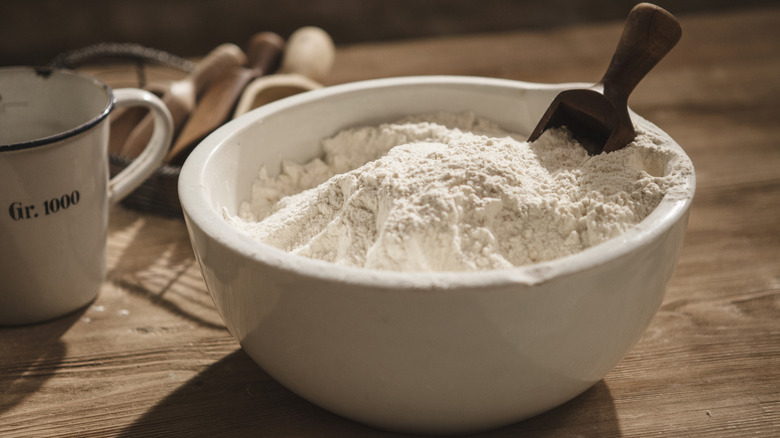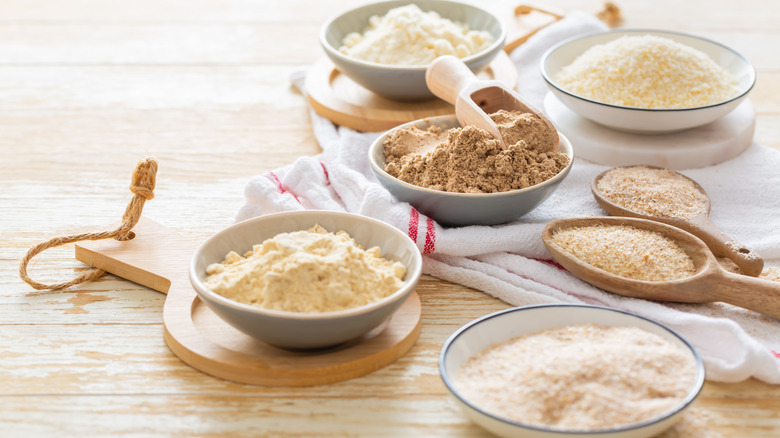Here's What Happens If You Don't Throw Out Your Old Flour
Flour is essential in the culinary world, so having at least a few bags in your pantry seems like a smart idea. Some recipes call for self-rising, some for whole-wheat or white whole-wheat flour, and others require a gluten-free alternative. The problem with storing so many kinds is it's easy to forget about some, and before you know it, you're stuck with a rancid bag.
Your flour will have a best by date on it, but while expiration dates are useful guides, it doesn't necessarily mean it's ready for the bin. That being said, there are a few things that happen when flour goes bad. It might start smelling musty or sour, due to the fats in the flour getting too much air exposure. It can also turn yellow or moldy, or become bug infested (ew).
If the signs aren't that obvious, and you accidentally use old flour, it can still seriously impact the way your baked goods rise, their overall texture, and their taste. But while flour generally lasts somewhere between three to eight months, the length of time it's good for will depend on exactly which type it is, and how it's stored.
Some flours expire quicker than others
The type of flour you have on hand will impact how long you have until it goes off. Most white refined flours like bread flour, all-purpose, or cake flour, can stay fresh for a year or longer, if you're storing it right. This means keeping it in a dark, cool place in an airtight container. However, something like self-rising flour (which contains baking powder) tends to go off quicker, so you may only have half a year to use it.
Unrefined flours like whole wheat or rye, tend to also spoil faster since the germ from the wheat isn't removed — and this contains oils which are more prone to rancidity. But store them correctly, and these can last up to six months. Gluten-free nut flours, like almond flour, are high in fat, which makes them susceptible to quicker spoilage, giving you only around half a year to use them. On the other hand, if you're using a gluten-free starch, like potato or tapioca, they will last just as long as refined white flour.
If it's hard to use it all in time, freezing flour is a great way to double its lifespan. Make sure to use a zip-top freezer bag or airtight container to protect it, and only defrost what you need to use. And remember, if it doesn't look or smell right, it's best to bin it.

